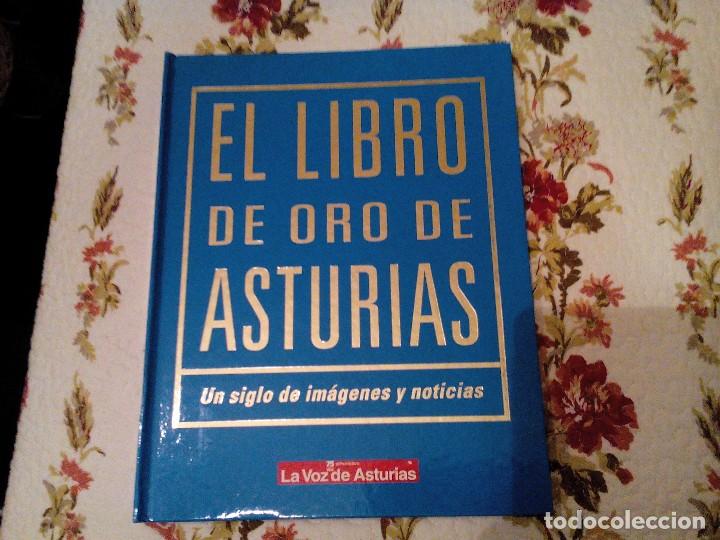la voz de avilés
Este artículo puede depender excesivamente de fuentes demasiado relacionadas con el tema, lo que puede impedir que el artículo sea verificable y neutral. Por favor, ayude a mejorarlo sustituyéndolas por citas más adecuadas a fuentes fiables, independientes y de terceros. (Mayo 2020) (Aprende cómo y cuándo eliminar este mensaje de la plantilla)
La Voz de Asturias es un periódico de España. Se publica en Oviedo y sirve a Asturias. Fue fundado en 1923 por José Tartiere Lenegre. Hasta 2012 fue un periódico impreso, tras lo cual dejó de publicarse. Cuatro años después, en 2016, resurgió como periódico digital. Tiene una postura política progresista. Escrito mayoritariamente en español, también contiene una sección en asturiano llamada «Ágora» (ágora significa ahora en asturiano).
la voz de galicia
¿Te preguntas cómo llegar a El Periódico la Voz de Asturias en Oviedo, España? Moovit te ayuda a encontrar la mejor manera de llegar a El Periódico la Voz de Asturias con indicaciones paso a paso desde la estación de transporte público más cercana.
Moovit proporciona mapas gratuitos e indicaciones en directo para ayudarte a navegar por tu ciudad. Consulta los horarios, las rutas, los horarios y averigua cuánto tiempo se tarda en llegar a El Periódico la Voz de Asturias en tiempo real.
¿Quieres ver si hay otra ruta que te permita llegar antes? Moovit te ayuda a encontrar rutas u horarios alternativos. Obtén direcciones desde y hacia El Periódico la Voz de Asturias fácilmente desde la App o el Sitio Web de Moovit.
Hacemos que ir a El Periódico la Voz de Asturias sea fácil, por eso más de 930 millones de usuarios, incluyendo usuarios de Oviedo, confían en Moovit como la mejor app para el transporte público. No necesitas descargarte una app individual de autobús o de tren, Moovit es tu app de transporte todo en uno que te ayuda a encontrar el mejor horario de autobús o tren disponible.
lne
There are many entries in this blog related to this topic, the best thing to do is to visit the Association’s page that is working so well and with so much perseverance to try to ensure that the restoration is carried out properly.
I am grateful that a newspaper publishes this news, regrettable because it is related to the yew, but it shows that our institutions forget the Yew Management Plan and so we are running out of long-lived specimens without anything happening. The citizens lament and this heritage is more and more abandoned by those who should protect it, in article 2 of the mentioned Plan it is said:
The entities, organisms or corporations that intervene in the granting of licenses, administrative concessions and any other kind of authorizations or that execute works within the scope of the approved plan must observe compliance with its guidelines and provisions.
Decree 65/95, of April 27, 1995, which creates the Regional Catalogue of Threatened Species of the Flora of the Principality of Asturias and establishes rules for its protection, classifies the yew (Taxus baccata L.) as a species «of special interest», also establishing that this classification requires the elaboration of a management plan that contemplates the necessary guidelines to avoid the threats to the species and to achieve, finally, a sufficiently safe state of conservation of the species.
el comercio
La Voz de Asturias disappeared, as a printed newspaper, on April 19, 2012, but re-emerged as a digital newspaper in 2016 as a result of the acquisition, by the corporation La Voz de Galicia, of the Asturian digital newspaper Asturias24, which had been founded in 2013 with the same spirit as the disappeared newspaper. Parallel to that operation, the Galician company also took over the historic masthead, which had passed into the hands of film producer José Velasco after the newspaper’s closure.
In 1963, the newspaper was acquired by the Galician businessman José Eladio Amado de Lema, whose family owned the newspaper El Faro de Vigo. Amado de Lema landed in the Asturian newspaper after previous negotiations between the Tartiere family and the newspaper ABC, which planned to open in Oviedo a subsidiary similar to the one already published in Seville, did not come to fruition.[4] Amado de Lema introduced some important changes: La Voz became a public limited company and Robín, as director, was succeeded by the also Galician Jorge Víctor Sueiro.

